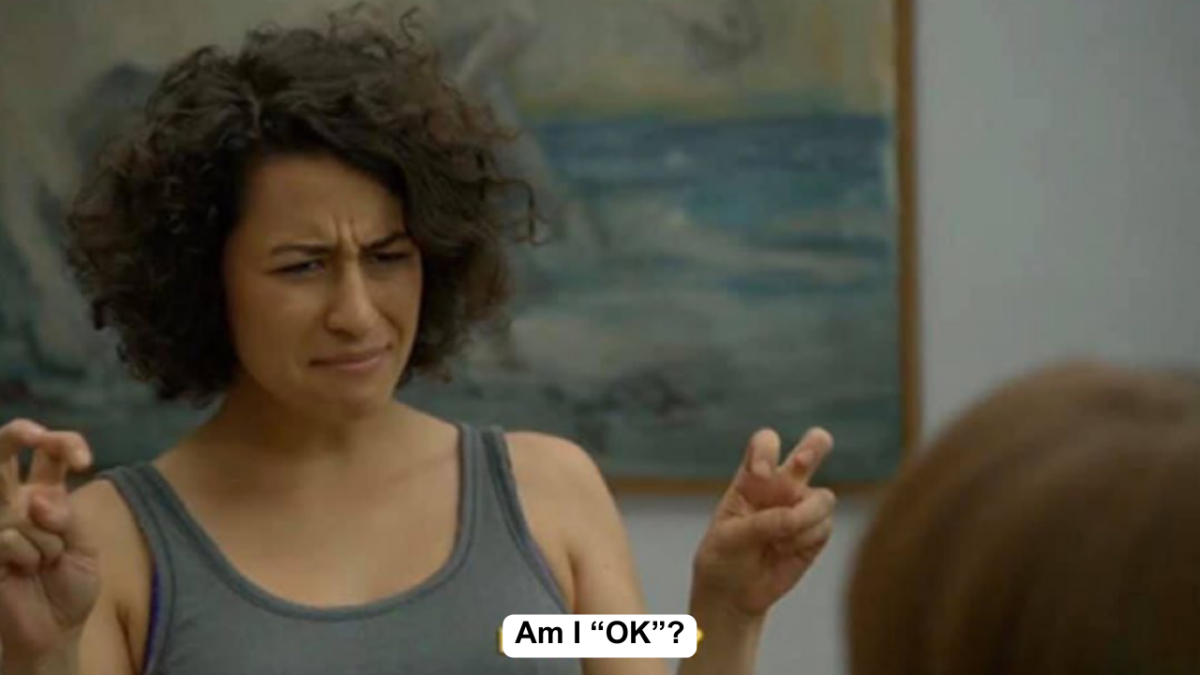
CONTENT WARNING: This article discusses mental health issues.
R U OK Day has a lovely message behind it — encouraging mates to check in with each other in case someone is struggling mentally, and to remind them they aren’t alone — but what if you’re not OK? What are the next steps?
We’re in the middle of a housing crisis, groceries are skyrocketing and so are petrol costs in the cost of living crisis, and climate doomism is taking a toll on us all. The result, at least for me and my friends, has been a pretty perpetual cycle of anxiety and hopelessness, and there’s only so much mindfulness can do when you’re worried about making ends meet.
“I think it’s really normal, having that sense of not wanting to burden others, or even not knowing what to say when somebody does disclose that maybe they’re not going that well,” Sarah Cox, a psychologist at LYSN, told PEDESTRIAN.TV.
“It takes a lot of vulnerability to even say ‘I’m not OK’, or ‘I’m going through a tough time’, it takes a lot of courage. So, you know, [if someone tells you they’re not OK], just try to be a really kind, compassionate human. Thank the person for their courage and letting you know, try to apply some empathy, acknowledge that it sounds like a hard time if they’ve given details of what’s happening to them. Try to be compassionate, non-judgmental, and empathic.”
And when you are in that space, what if all your mates are on the same sinking boat as you — so you either feel like you don’t want to burden them with your issues, or they sympathise with you but can’t actually help you because a) they’re barely keeping afloat themselves and b) what you really need is something they can’t possibly offer, like a rent freeze?
Sarah also noted that while there will certainly be times where you can’t fix your friend’s issue, just offering kind words or a hug can help people cope. Maybe you can’t pay your friend’s grocery bill, but perhaps the two of you can go for a walk together and just be there for one another?
“Like, even just trying to do little things? You know, it’s not necessarily going to be a magic solution. But, if we can increase our sense of connectedness, that sense that we’re not alone, it can take some of the sting out of what we might be going through.”
At the end of the day, Sarah recommended not underestimating the power of connection and how much seeing or speaking to a friend can take the edge off.
“Even if it’s just sharing a meme or something like that, just a little bit of human connection can be helpful.”
For me, that was pretty illuminating. There have definitely been times where I’m dealing with something alone, and honestly, even a “check out this TikTok” text could have been the difference between a menty b and feeling grounded.
But what if you don’t feel like you have close friends to talk to about this stuff in the first place? Research shows that Gen Z are the loneliest generation, so there’s certainly a pattern of young people feeling a little isolated and like they don’t have the meaningful connections they need, which sucks when we’re dealing with so much.
Sarah suggested that in those circumstances, the first step is to practice “self compassion” — which is not the same thing as self care.
“There’s more and more research coming out around the benefits of self compassion. When we’re in those really hard moments, sometimes we can be quite harsh and critical and judgmental of ourselves, which can make us feel worse instead of better.
“There are three main parts of self compassion. The first one is just acknowledging, like: ‘This is a really hard moment, this is a hard time, this is pain, I’m hurting at the moment, I’m suffering’. And the next part is acknowledging that the pain and hurt is part of the human experience. And, you know, everybody does feel like this — connecting to our sense of common humanity can help us feel a little bit less alone.
“The third step of self compassion is just trying to express some sort of kindness to ourselves.”
The last point can vary depending on a) what you can give yourself and b) what comforts you. For an over-thinker, it could be choosing to speak to yourself kindly: “You will get through this/these feelings will pass and there will be a way forward”, for example. Treat yourself how you’d treat a friend in this scenario, you know?
Of course, you don’t always have to rely on yourself — mental health accredited social worker Tracey Davies recommended a bunch of resources and helplines that can come in handy if you’re not OK but don’t have a mate to talk to about it with.
“There’s plenty of [resources] online like Headspace, Reachout.com, Kids Helpline,” she suggested.
“So you can get the free phone numbers off the website, or you can do web chats with any of those. There’s also Lifeline, Beyond Blue and Black Dog Institute —it’s anonymous, [and you] can just have a word with somebody who gets you, who understands you. Who can listen and maybe give you some practical tools.”
She also noted that places like Lifeline can link you up with other services. If your main stressor is soaring rental costs, for example, they can link you up to financial counsellors, or NGOs (Non-government organisations) that can advocate on your behalf.
Both Sarah and Tracey acknowledged that we’re in strange, unprecedented times — it’s pretty easy to dismiss any mental health support as useless when it might not change your material conditions.
But that being said, human connection and coping mechanisms can make a world of a difference.
- If you need mental health support, please call Lifeline on 13 11 14 or chat online.
- Under 25? You can reach Kids Helpline at 1800 55 1800 or chat online.
- If you require immediate assistance, please call 000



